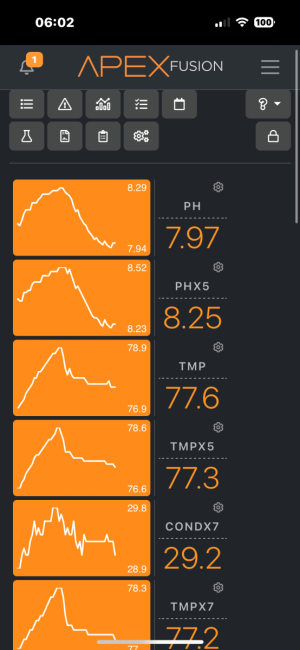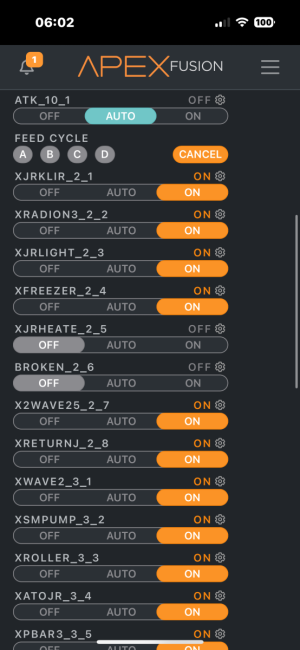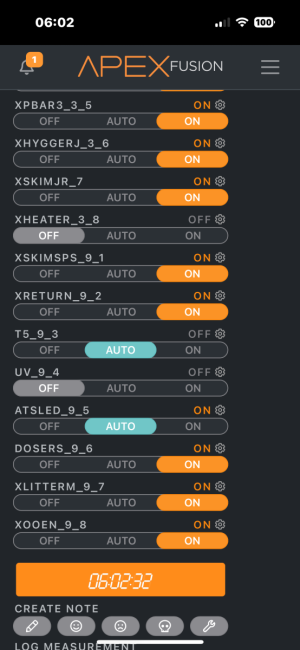pH, salinty. ORP if you care.
Big thing? Temperature. Especially if you have an EB8 or EB832, so you can use it to control your heater(s), which has some advantages, such as letting you use heaters without thermostats (like the titanium ones tend not to have) or just not rely on the often imprecise and unreliable thermostats in the heater, which can sometimes get stuck on, in which case as soon as the water temp passes your threshold, the Apex just straight turns off the outlet. This also means the heaters spend less time turning themselves on and off, theoretically increasing their expected lifespan.
Other automation is possible as well. For example, any time either of my pumps turns off for whatever reason, my ATO is immediately turned off, and does not come back on for ten minutes, giving water levels a chance to stabilize, such as if the overflow in my refugium doesn't start to siphon right away, keeping just enough water in it to lower the level below the ATO sensor's bottom and tripping it on. The same delay is also in place after a power loss.
Not to mention it's also great for logging all measurements and other observations.



